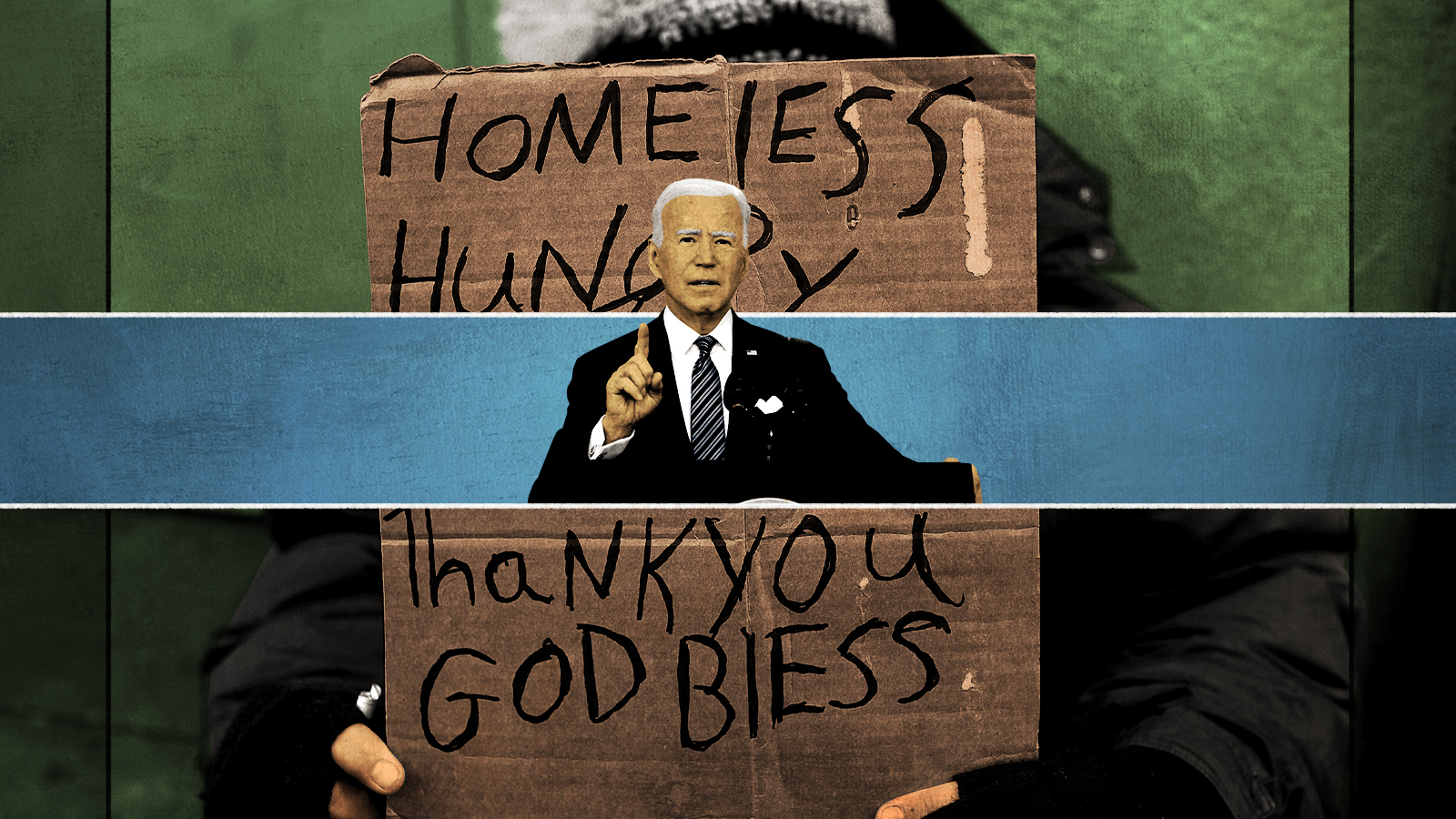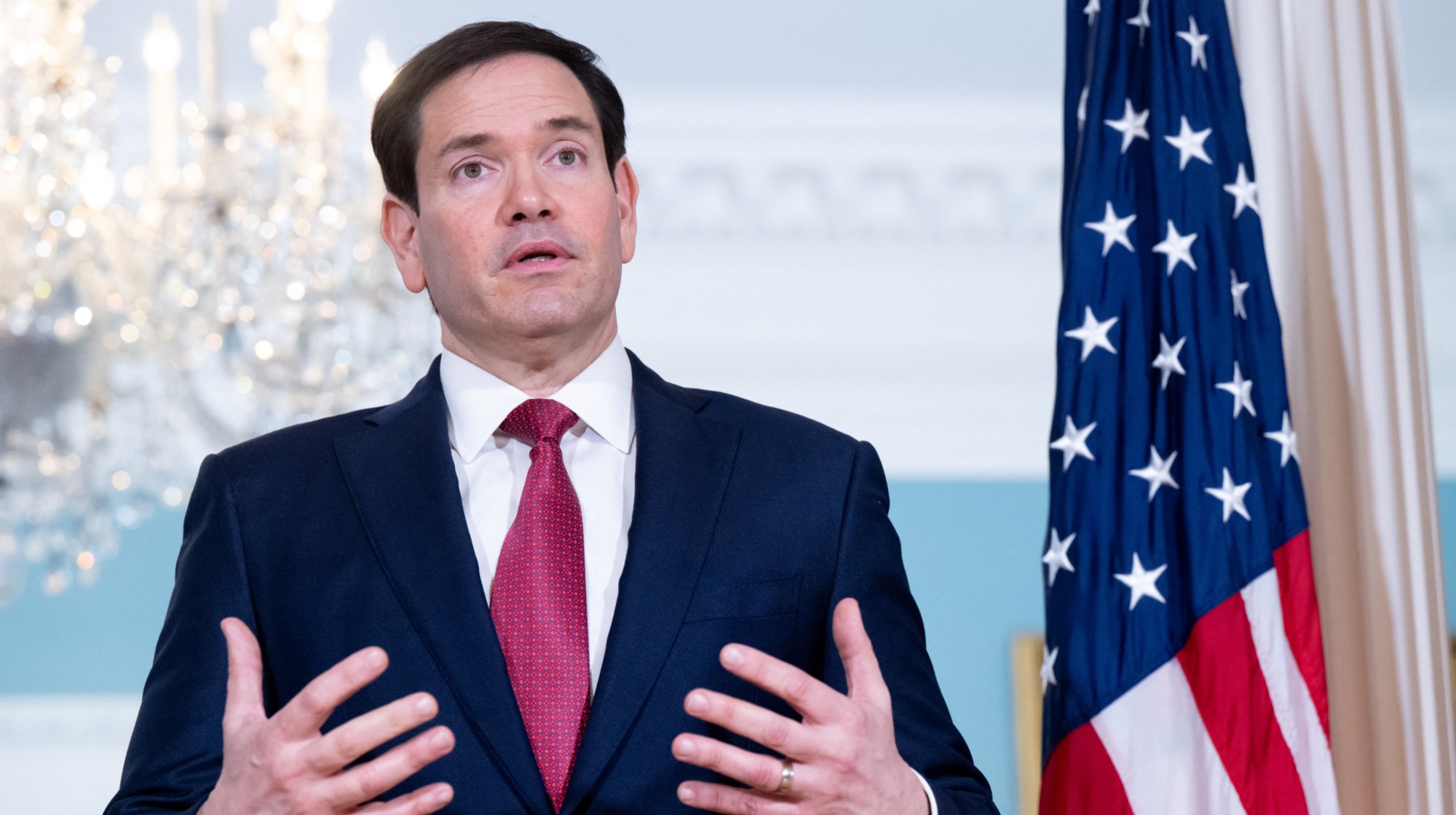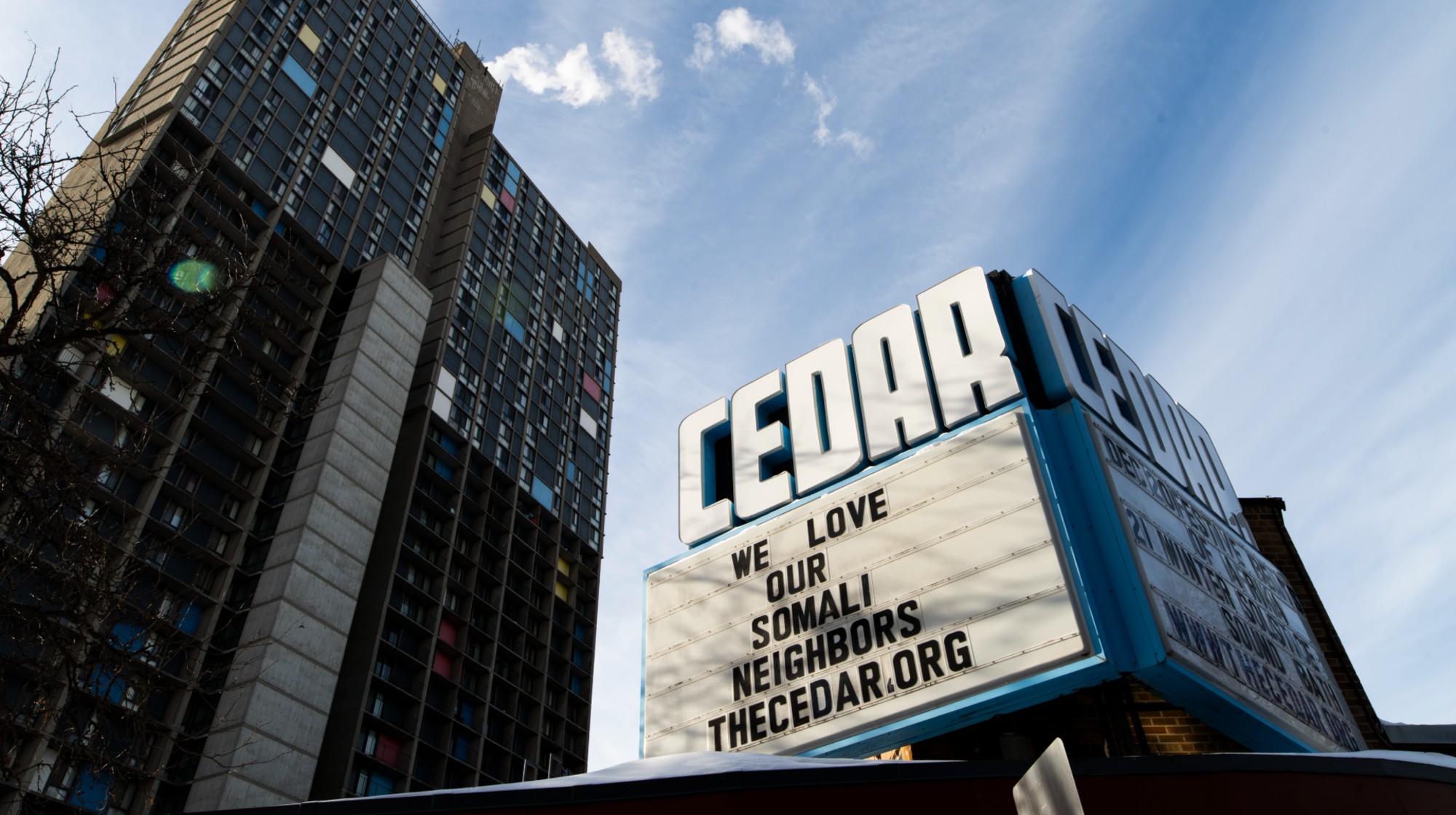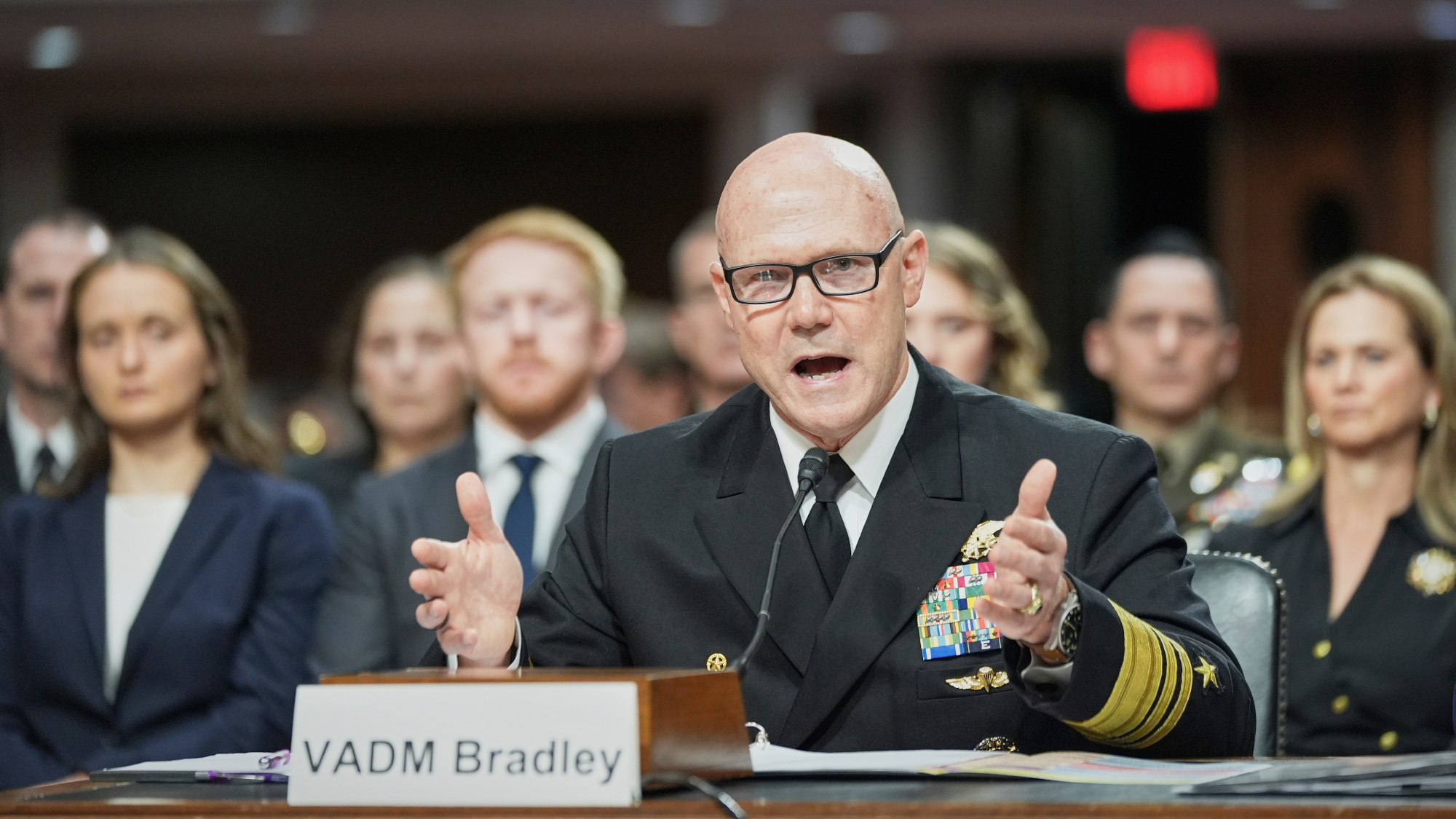Inside Biden's homelessness plan
The president wants to reduce homelessness by 25 percent by 2025, but can it be done?


A free daily email with the biggest news stories of the day – and the best features from TheWeek.com
You are now subscribed
Your newsletter sign-up was successful
President Biden has unveiled the latest item on his to-do list: a sweeping agenda aimed at reducing homelessness in the United States. But can the president's lofty goals be met? Here's everything you need to know:
What is President Biden's new agenda for homelessness?
The agenda, titled "All In: The Federal Strategic Plan to Prevent Homelessness," was unveiled by the Biden administration as the next iteration of the federal effort to stop homelessness. Produced by the United States Interagency Council on Homelessness (USICH) in conjunction with 19 federal agencies, this federal strategic plan sets the ultimate goal of reducing homelessness in the U.S. by 25 percent by 2025.
According to the USICH, "All In" was developed using a wide swath of data points and research, including input from more than 1,500 comments and dozens of listening sessions from people who have experienced homelessness.
The Week
Escape your echo chamber. Get the facts behind the news, plus analysis from multiple perspectives.

Sign up for The Week's Free Newsletters
From our morning news briefing to a weekly Good News Newsletter, get the best of The Week delivered directly to your inbox.
From our morning news briefing to a weekly Good News Newsletter, get the best of The Week delivered directly to your inbox.
In a statement, the White House called the plan "the most ambitious effort by any administration to prevent people from becoming homeless" while also addressing inequality in America. The statement noted that the plan will work to build on the foundation established by "Opening Doors," the homelessness plan unveiled by the Obama-Biden administration in 2010.
"My plan offers a roadmap for not only getting people into housing but also ensuring that they have access to the support, services, and income that allow them to thrive," Biden wrote in an introductory letter to the plan. "It is a plan that is grounded in the best evidence and aims to improve equity and strengthen collaboration at all levels."
How will it reduce homelessness?
There are a number of prongs to the agenda, a large part of which builds on the president's previously-signed American Rescue Plan. That roadmap, which was passed in 2021 as a stimulus package to help jump-start the economy after the COVID-19 pandemic, has already provided billions of dollars in rental assistance to help keep people off the streets. "All In" is aiming to increase this federal funding significantly in an effort to build more homeless shelters and affordable housing. The White House said more than 100,000 people will have already been removed from homelessness by the end of 2022.
"All In" is built around three foundational principles — equity, data, and collaboration — and three solution principles — housing and support, homelessness response, and prevention. Each of these pillars "includes strategies the federal government will pursue to facilitate increased availability of and access to housing, economic security, health care, and stability for all Americans."
A free daily email with the biggest news stories of the day – and the best features from TheWeek.com
As Insider reports, the plan will also look to achieve a number of localized solutions to homelessness, including the mobilization of funds to create housing on state levels as well as federal levels. Further, it outlines a number of cross-country homelessness initiatives that will be supported by the White House.
The entire network of strategies will follow the "Housing First" model, the White House said. Per the National Alliance to End Homelessness (NAEH), this idea is a public housing approach that focuses on getting homeless people a permanent place to stay prior to addressing any other systemic problems, such as drug addiction or mental illness. The idea is guided by the principle that basic needs, such as food, clothing, and shelter, should override any other problems a homeless person may be having.
What is the current state of homelessness in the U.S., and will Biden's plan work?
The statistics on homelessness have been derailed due to the pandemic, so 2020 is the last full year in which data was collected. That year, there were just over 580,000 people experiencing homelessness in the United States, the NAEH reported. While the majority — 70 percent — were living on their own, the rest were families, many of which had young children. This included people from every race, background, gender, and ethnicity.
In total, more than 1.25 million people experienced homelessness at some point in 2020, and the crisis has been only exacerbated by economic hardships and issues from the pandemic.
Overall homelessness data collected from 2010 to 2016 showed that the total number of people living on the street was steadily declining; however, that figure has been rising every year since, according to the NAEH. And The Washington Post reports that, in addition to overall rising numbers, there are now more unsheltered homeless people — people who actually live on the street — than those who reside in homeless shelters.
Again, the goal of "All In" is to reduce the level of homelessness in the U.S. by 25 percent. "Homelessness is largely the result of failed policies," the plan says. "Severely underfunded programs and inequitable access to quality education, health care ... and economic opportunity have led to an inadequate safety net."
But will "All In" actually help solve the homelessness problem? Steve Berg, the chief policy officer at NAEH, told the Post that the agenda offers "an overall approach to the problem," and sounded optimistic considering the administration had had previous success with eliminating targeted groups of homeless individuals. But of the 25 percent goal, Berg added, "I am completely convinced that it's possible. Whether it will succeed — it's sort of hard to tell."
What else has the administration done about homelessness?
"All In" is not the first initiative introduced by Biden to try and eliminate homelessness. Beyond the issue's inclusion in the American Rescue Plan, the White House introduced the Housing Supply Action Plan earlier in 2022. Similar to the other agendas, the Housing Supply Action Plan served to ease the widening housing supply gap and help make housing more affordable for low-income Americans.
The plan included specific rewards for jurisdictions that reformed their zoning and land use policies to create more affordable dwellings. It also earmarked additional federal funding for housing mechanisms and worked with the private sector to build new homes at a rapid pace. Months after it was introduced, the Biden administration provided an update on the Housing Action Supply Plan — the agenda had so far provided more than 19,000 housing vouchers to 2,000 public housing groups across the country.
In addition, the U.S. Department of Housing and Urban Development sets a yearly fair market rent, which is used to determine the value of some public housing vouchers. This figure is slated to be increased by 10 percent for the fiscal year 2023.
While homeless clearly remains an endemic problem in the United States, it seems the Biden administration is keen to place its eradication near the top of the White House's agenda.
Justin Klawans has worked as a staff writer at The Week since 2022. He began his career covering local news before joining Newsweek as a breaking news reporter, where he wrote about politics, national and global affairs, business, crime, sports, film, television and other news. Justin has also freelanced for outlets including Collider and United Press International.
-
 Magazine solutions - February 27, 2026
Magazine solutions - February 27, 2026Puzzle and Quizzes Magazine solutions - February 27, 2026
-
 Magazine printables - February 27, 2026
Magazine printables - February 27, 2026Puzzle and Quizzes Magazine printables - February 27, 2026
-
 ‘The forces he united still shape the Democratic Party’
‘The forces he united still shape the Democratic Party’Instant Opinion Opinion, comment and editorials of the day
-
 Kurt Olsen: Trump’s ‘Stop the Steal’ lawyer playing a major White House role
Kurt Olsen: Trump’s ‘Stop the Steal’ lawyer playing a major White House roleIn the Spotlight Olsen reportedly has access to significant U.S. intelligence
-
 The ‘mad king’: has Trump finally lost it?
The ‘mad king’: has Trump finally lost it?Talking Point Rambling speeches, wind turbine obsession, and an ‘unhinged’ letter to Norway’s prime minister have caused concern whether the rest of his term is ‘sustainable’
-
 A running list of everything Donald Trump’s administration, including the president, has said about his health
A running list of everything Donald Trump’s administration, including the president, has said about his healthIn Depth Some in the White House have claimed Trump has near-superhuman abilities
-
 White House halts migrant visas for 75 countries
White House halts migrant visas for 75 countriesSpeed Read Brazil, Egypt, Russia, Iran and Somalia are among the nations on the list
-
 White House ends TPS protections for Somalis
White House ends TPS protections for SomalisSpeed Read The Trump administration has given these Somalis until March 17 to leave the US
-
 A running list of everything Trump has named or renamed after himself
A running list of everything Trump has named or renamed after himselfIn Depth The Kennedy Center is the latest thing to be slapped with Trump’s name
-
 ‘Care fractures after birth’
‘Care fractures after birth’instant opinion Opinion, comment and editorials of the day
-
 White House says admiral ordered potential war crime
White House says admiral ordered potential war crimeSpeed Read The Trump administration claims Navy Vice Adm. Frank ‘Mitch’ Bradley ordered a follow-up strike on an alleged drug-smuggling boat, not Pete Hegseth
